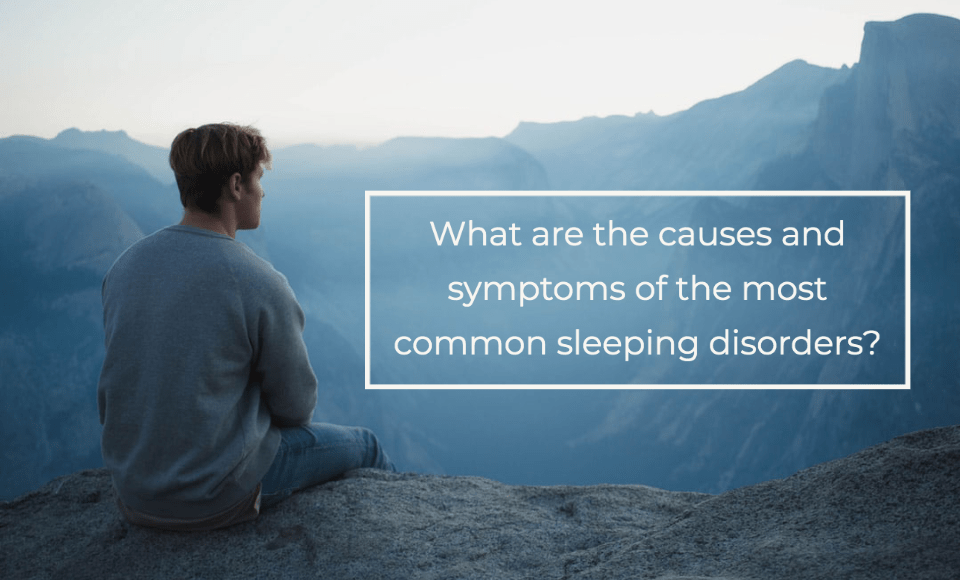Causes and Symptoms of the Most Common Sleeping Disorders
Sleeping is an absolute necessity of living and is a natural physiological phenomenon. It is in sleep where people recharge and get energy for the activities of daily living. The different systems of the body are being revitalized during the stages and cycles of sleep. In the United States of America, around 20 million suffer from occasional sleeping disorders and around 40 million people suffer from chronic sleeping disorders every year. The most common sleeping disorders are insomnia, narcolepsy, sleep apnea, somnambulism, and sleep deprivation.
Insomnia
Insomnia is a person’s inability to sleep at night. This is one of the most common sleeping disorders. Insomnia can be chronic or acute. Acute insomnia is often caused by side effects to medications, food, drinks, stress, environmental factors, discomfort, and an acute medical condition. Chronic insomnia, on the other hand, is caused by constant stress or pain, a chronic medical condition, and a mental condition such as depression. Insomnia is characterized by difficulty in falling asleep, difficulty going back to sleep after waking up in the middle of the night, frequent waking up at night, fragmented sleep, and daytime sleepiness.
Sleep Deprivation
Insomnia is usually accompanied by another sleeping problem—sleeping deprivation. The hours of sleep a person needs are inversely proportional to age so the newborns and infants are the ones who need sleep the most. The ideal amount of sleep is eight hours a day for adults. Every person should be able to meet their sleep needs for optimum performance during their daytime otherwise, sleep deprivation will occur. Sleep deprivation is usually caused by stress, anxiety, and poor sleeping habits, and is characterized by irritability, fatigue, memory loss, changes in appetite, daytime drowsiness, and slowed reaction. Sleep deprivation also causes other kinds of sleep disorders.
Narcolepsy
Narcolepsy is a sleeping disorder where a person experiences daytime sleepiness. This sleeping disorder is neurological in nature. Although the cause is not clearly known, scientists believe that narcolepsy is due to the lack of chemicals in the brain controlling the cycles of sleep and wakefulness. Narcolepsy is characterized by intermittent and uncontrollable periods of falling asleep throughout the day at any time of the day, cataplexy or loss of muscle tone, hallucinations, and sleep paralysis.
Sleep Apnea
Sleep apnea, aside from being one of the common sleeping disorders, is a potentially fatal condition. “Apnea” is the medical term for “not breathing” and in sleep apnea, the person experience periods in their sleep not breathing. The cause of sleep apnea is airway obstruction. People suffering from sleep apnea stop breathing for at least 10 seconds and then they will wake up in the middle of their sleep because of the brain signaling them to get more oxygen. Sleep apnea is usually associated with loud snoring. This disorder can cause heart diseases and stroke in due course if left untreated. This sleep disorder is dangerous and life-threatening but can be easily diagnosed and treated.
Somnambulism
Somnambulism, more popularly called as sleepwalking, is one of the sleeping disorders common in children. In this disorder, the sufferer gets out of the bed, walks around, or does other activities while still sleeping. The patient might half-open his or her eyes while sleepwalking. The cause of somnambulism in children is anxiety and sleep deprivation. In adults, it is caused by a variety of factors such as medicine, anxiety, medical disorder, or a mental condition.
Sleeping disorders will, without a doubt, affect a person’s health. Sleeping disorders can be effectively managed by planning a sleep routine and performing interventions to promote undisturbed sleep. Therefore, in spite of having these sleep problems, consistent and good sleeping habits will definitely decrease the stress to the body sleeping disorders give to their sufferers. If simple interventions are not enough as management, medical interventions can be done and medications can be prescribed by doctors for these sleeping disorders.

